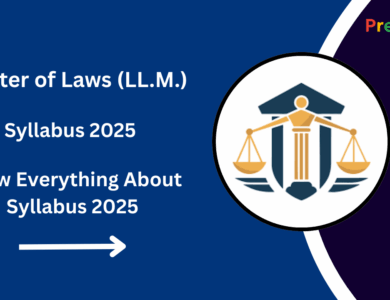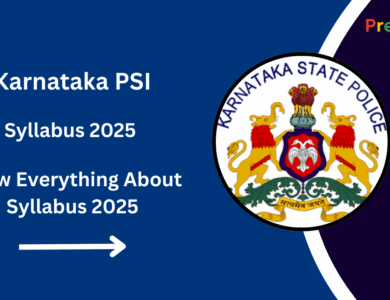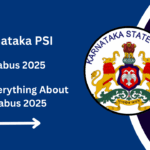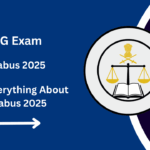CA Intermediate Syllabus 2025 – Detailed Subject-wise Overview
Get a subject-wise overview of the CA Intermediate syllabus for 2025. Learn about the topics covered in Advanced Accounting, Corporate Laws, Taxation, and more. Essential for effective exam preparation.
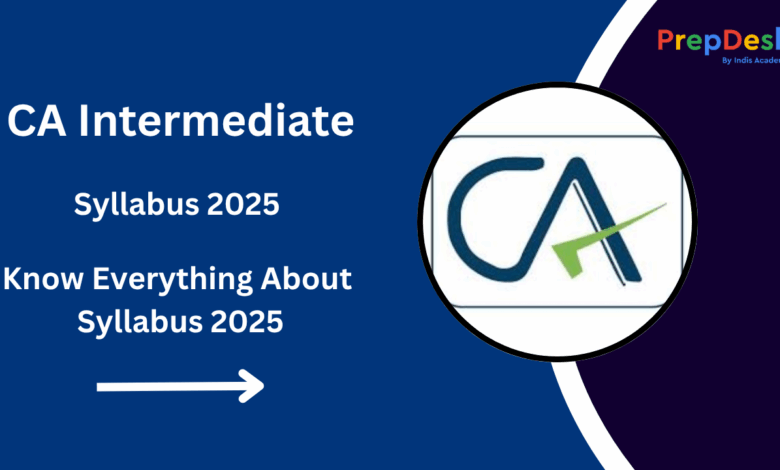
The CA Intermediate examination is the second stage of the Chartered Accountancy course offered by the Institute of Chartered Accountants of India (ICAI). It builds upon foundational knowledge and introduces core accounting, taxation, auditing, and financial concepts essential for becoming a Chartered Accountant.
In this detailed guide, we cover the complete CA Intermediate syllabus 2025, including subject-wise topics, marks distribution, number of questions, PDF download link, specializations, recommended books, and expert preparation tips.
Exam Overview
| Feature | Details |
|---|---|
| Exam Name | CA Intermediate |
| Conducting Body | ICAI (Institute of Chartered Accountants of India) |
| Exam Level | Second Level of CA Course |
| Mode of Exam | Offline (Pen and Paper) |
| Medium | English / Hindi |
| Groups | 2 Groups (Group I & Group II) |
| Total Subjects | 8 Subjects |
| Question Type | Objective and Descriptive |
| Passing Criteria | 40% per subject and 50% aggregate per group |
| Frequency | Twice a year (May and November) |
CA Intermediate Subjects – Group-wise Syllabus
The CA Intermediate course is divided into two groups. Each group contains four subjects. Below is the detailed subject-wise syllabus including topics, marks weightage, and expected number of questions.
Group I Subjects
1. Accounting (Paper 1)
| Topics | Marks Weightage | Expected Questions |
|---|---|---|
| Accounting Standards | 20-25 | 5-6 |
| Company Accounts | 15-20 | 4-5 |
| Partnership Accounts | 10-15 | 2-3 |
| Special Transactions (e.g., Hire Purchase) | 15-20 | 3-4 |
| Not-for-Profit Organization | 5-10 | 1-2 |
| Insurance Claims | 5-10 | 1-2 |
| Other Topics | 5-10 | 1-2 |
2. Corporate and Other Laws (Paper 2)
Part I: Company Law (60 Marks)
Part II: Other Laws (40 Marks)
| Topics | Marks Weightage | Expected Questions |
|---|---|---|
| Incorporation, MOA, AOA, Directors | 30-35 | 6-8 |
| Share Capital and Debentures | 10-15 | 2-3 |
| Indian Contract Act, General Clauses Act | 20-25 | 4-5 |
| Interpretation of Statutes | 5-10 | 1-2 |
3. Cost and Management Accounting (Paper 3)
| Topics | Marks Weightage | Expected Questions |
|---|---|---|
| Cost Concepts and Classification | 15-20 | 3-4 |
| Material, Labour, Overhead Costing | 20-25 | 5-6 |
| Marginal, Standard Costing | 20-25 | 4-5 |
| Budgeting, Process & Contract Costing | 15-20 | 3-4 |
| CVP Analysis, Decision Making | 10-15 | 2-3 |
4. Taxation (Paper 4)
Part A: Income Tax (50 Marks)
Part B: GST (50 Marks)
| Topics | Marks Weightage | Expected Questions |
|---|---|---|
| Basic Concepts, Residential Status | 5-10 | 1-2 |
| Heads of Income | 25-30 | 5-6 |
| Deductions, Set-Off, Rebate | 10-15 | 2-3 |
| Introduction to GST | 20-25 | 4-5 |
| Input Tax Credit, Returns | 20-25 | 4-5 |
Group II Subjects
5. Advanced Accounting (Paper 5)
| Topics | Marks Weightage | Expected Questions |
|---|---|---|
| Accounting Standards | 20-25 | 5-6 |
| Amalgamation, Buy-back | 20-25 | 4-5 |
| Partnership Accounts | 15-20 | 3-4 |
| Banking, Insurance Company Accounts | 15-20 | 3-4 |
| Branch and Department Accounts | 10-15 | 2-3 |
6. Auditing and Assurance (Paper 6)
| Topics | Marks Weightage | Expected Questions |
|---|---|---|
| Audit Nature and Types | 10-15 | 2-3 |
| Planning and Risk Assessment | 15-20 | 3-4 |
| Internal Control, Vouching | 20-25 | 4-5 |
| Audit of Entities | 15-20 | 3-4 |
| Documentation, Sampling | 10-15 | 2-3 |
7. EIS & Strategic Management (Paper 7)
Section A: EIS (50 Marks)
Section B: Strategic Management (50 Marks)
| Topics | Marks Weightage | Expected Questions |
|---|---|---|
| E-Commerce, DBMS | 20-25 | 4-5 |
| ERP, Core Banking | 15-20 | 3-4 |
| Strategic Planning | 20-25 | 4-5 |
| Business Environment | 15-20 | 3-4 |
8. Financial Management & Economics (Paper 8)
Section A: Financial Management (60 Marks)
Section B: Economics for Finance (40 Marks)
| Topics | Marks Weightage | Expected Questions |
|---|---|---|
| Capital Budgeting, Ratio | 20-25 | 4-5 |
| Cost of Capital, Leverage | 15-20 | 3-4 |
| Working Capital | 15-20 | 3-4 |
| Economics & Time Value | 10-15 | 2-3 |
Download CA Intermediate Syllabus PDF
Click the link below to download the latest official CA Intermediate syllabus PDF:
👉 Download CA Intermediate Syllabus PDF 2025
Specializations After CA Intermediate
While no specialization is offered at the Intermediate level, your interest and subject strengths can guide your future specialization after becoming a Chartered Accountant:
- Taxation (Direct & Indirect): Involves expertise in income tax, GST, and corporate taxation, focusing on compliance, planning, and advisory services for individuals and businesses.
- Audit & Assurance: Specialize in statutory audits, internal audits, forensic audits, and risk assessments to ensure accuracy and transparency in financial reporting.
- Financial Management: Focuses on budgeting, capital structure, valuation, and investment decisions to help organizations optimize financial performance and resource allocation.
- Corporate and Economic Laws: Deals with corporate governance, SEBI regulations, company law compliance, and legal advisory for corporate restructuring and mergers.
- Information Systems: Specialization in IT audits, cybersecurity, ERP systems, and evaluating internal control systems to align business operations with digital transformation.
Recommended Books for CA Intermediate
| Subject | Author / Publisher |
|---|---|
| Accounting | CA Parveen Sharma / ICAI Module |
| Corporate & Other Laws | Munish Bhandari / ICAI |
| Cost Accounting | CA Ravi Kishore / ICAI |
| Taxation | CA Vinod Gupta / TN Manoharan |
| Advanced Accounting | CA Parveen Sharma / ICAI |
| Auditing | Surbhi Bansal / ICAI |
| EIS & SM | CA Swapnil Patni / CA Ankita Patni |
| FM & Economics | CA G Sekar / ICAI |
Preparation Tips for CA Intermediate
- Start preparation at least 6 months before the exam.
- Prioritize ICAI modules and RTPs.
- Make handwritten notes for quick revision.
- Solve mock tests under timed conditions.
- Revise theory daily to retain concepts.
- Stay updated with tax and law amendments.
- Use group studies for theory-based subjects.
- Stay consistent, healthy, and mentally strong.
Conclusion
The CA Intermediate syllabus 2025 is extensive yet rewarding. By understanding each subject’s structure, focusing on conceptual clarity, and following a disciplined study plan, you can successfully clear this level. Utilize ICAI materials, recommended books, and consistent revision strategies to stay ahead in your CA journey.
Have any questions about the CA Intermediate syllabus? Drop a comment below!


